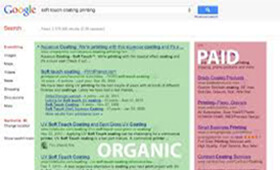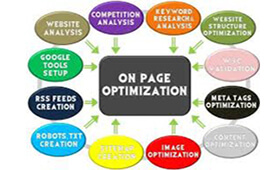
22 essentials you need for optimizing your site
March 9, 2016
How to calculate the value of organic traffic
March 14, 2016
In last article I explained 11 essentials you need for optimizing your site and in this article, I will continue to explain the rest of 22 essentials.
12) Social
The most obvious way that you can raise your site’s visibility through non-technical SEO means is of course through social media marketing.
You need to make sure you’re present on all relevant social channels (wherever your audience may be), and not just broadcasting your content in a faceless manner, but by using it as a customer service channel and genuinely interacting with people in a friendly, helpful and entertaining manner.
13) Comments
Do not turn off your comments system. Having a thriving community of regular commenters engaging in dialogue under your posts shows that visitors care enough about your content to either make their own relevant points or to praise it. Either way, at least people are reading it.
Just be super-mindful about filtering out spam comments, or immediately removing any that slip through.
14) Domain names
You should use sub-directory root domains (searchenginewatch.com/category/seo) instead of sub-domains (searchenginewatch.category.seo.com) as this is better for your overall site architecture.
You should also stay away from hyphens (search-engine-watch.com) and alternative Top-level domain names (.biz .name .info) as these are considered spammy.
Having a ‘keyword rich’ domain name may lead to closer scrutiny from Google. According to Moz, Google has “de-prioritized sites with keyword-rich domains that aren’t otherwise high-quality. Having a keyword in your domain can still be beneficial, but it can also lead to closer scrutiny and a possible negative ranking effect from search engines—so tread carefully.”
Also, you should make sure that if you operate a site without the www. prefix, someone who types in www.example.com will still be redirected to your site. If this isn’t happening, Google may assume these are two different sites and your visibility could be compromised.
15) Headlines and permalinks
The headlines for your articles should be under 55 characters to ensure their complete visibility in SERPs. Make sure they’re snappy, attractive and as descriptive as possible (this is often an impossible balance). Just stay away from clickbait headlines, do not promise something that the content doesn’t deliver.
The permalink (or URL), which you can normally alter in your CMS even after it’s been set automatically, doesn’t necessarily have to match the headline exactly. Google has stated that you can use three to four keywords that you should put the most important keywords first.
16) Local SEO
Increasingly Google is serving results to users based on their location. This is particularly important to businesses out there in the real world who need to catch a searcher’s attention just at the right moment, i.e. while walking down the street, on their mobile and looking for somewhere to eat.
You should register with Google My Business and ensure that all of your information is accurate and up-to-date, such as opening times, contact information, customer reviews and that you are categorized correctly.
The actual correlation between social signals and search rankings is a much argued over a subject, but here’s a good overview of the subject.
What are search engines NOT looking for?
There are many ‘black hat’ practices that can bring the full weight of a Google penalty down on your site, so it’s best to avoid doing the following, even if it looks like a brilliant easy win at the time.
17) Mobile app interstitials
If you present mobile visitors with a full-screen advert to download your app, Google will consider you no longer mobile friendly.
18) Hidden text and links
There are ways to manipulate rankings that a user may not ever see, but Google will probably find and punish you for.
Stay away from using white text on a white background, positioning text off-screen, setting the font size to zero or hiding a link in a single character like a comma or a full-stop.
The temptation to put a link in that last full stop was incredibly high.
19) Duplicated content
If Google finds two identical pieces of content, whether on your own site or on another you’re not even aware of, it will only index one of those pages. You should be aware of scraper sites, stealing your content automatically and republishing as your own. Here’s Graham Charlton’s thorough investigation on what to if your content ends up working better for somebody else.
20) Link buying or excessive link exchanging
Thinking of approaching a link farm? Just don’t do it. It’s not even worth it. The most valuable links to your site are the ones that come from authority sites within your own niche.
21) Annoying ads
Anything overly intrusive that destroys the pleasure of reading your content and slows down your site speed.
22) Keyword stuffing
Overusing keywords on your pages, especially when they obviously affect the readability of your site. It’s debatable whether Google even still uses keywords as a ranking factor anymore.



